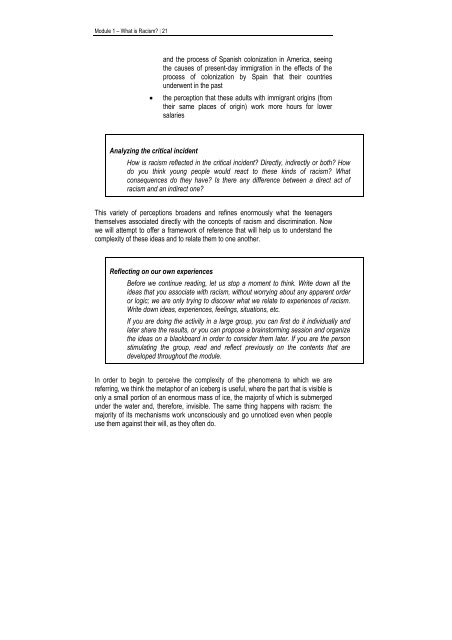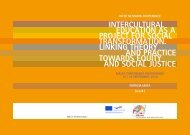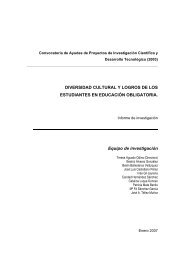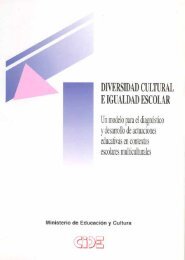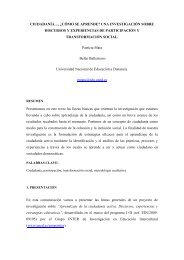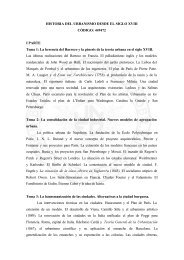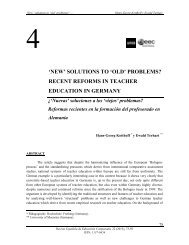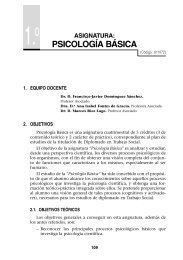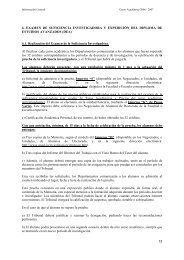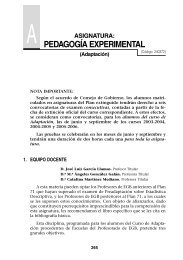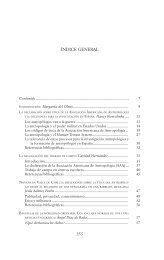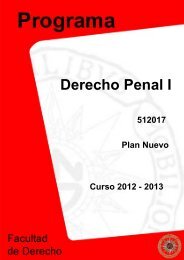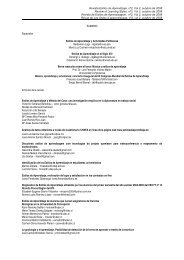Racism: What It Is and How to Deal with It - Uned
Racism: What It Is and How to Deal with It - Uned
Racism: What It Is and How to Deal with It - Uned
You also want an ePaper? Increase the reach of your titles
YUMPU automatically turns print PDFs into web optimized ePapers that Google loves.
Module 1 – <strong>What</strong> is <strong>Racism</strong>? | 21<br />
<strong>and</strong> the process of Spanish colonization in America, seeing<br />
the causes of present-day immigration in the effects of the<br />
process of colonization by Spain that their countries<br />
underwent in the past<br />
• the perception that these adults <strong>with</strong> immigrant origins (from<br />
their same places of origin) work more hours for lower<br />
salaries<br />
Analyzing the critical incident<br />
<strong>How</strong> is racism reflected in the critical incident? Directly, indirectly or both? <strong>How</strong><br />
do you think young people would react <strong>to</strong> these kinds of racism? <strong>What</strong><br />
consequences do they have? <strong>Is</strong> there any difference between a direct act of<br />
racism <strong>and</strong> an indirect one?<br />
This variety of perceptions broadens <strong>and</strong> refines enormously what the teenagers<br />
themselves associated directly <strong>with</strong> the concepts of racism <strong>and</strong> discrimination. Now<br />
we will attempt <strong>to</strong> offer a framework of reference that will help us <strong>to</strong> underst<strong>and</strong> the<br />
complexity of these ideas <strong>and</strong> <strong>to</strong> relate them <strong>to</strong> one another.<br />
Reflecting on our own experiences<br />
Before we continue reading, let us s<strong>to</strong>p a moment <strong>to</strong> think. Write down all the<br />
ideas that you associate <strong>with</strong> racism, <strong>with</strong>out worrying about any apparent order<br />
or logic; we are only trying <strong>to</strong> discover what we relate <strong>to</strong> experiences of racism.<br />
Write down ideas, experiences, feelings, situations, etc.<br />
If you are doing the activity in a large group, you can first do it individually <strong>and</strong><br />
later share the results, or you can propose a brains<strong>to</strong>rming session <strong>and</strong> organize<br />
the ideas on a blackboard in order <strong>to</strong> consider them later. If you are the person<br />
stimulating the group, read <strong>and</strong> reflect previously on the contents that are<br />
developed throughout the module.<br />
In order <strong>to</strong> begin <strong>to</strong> perceive the complexity of the phenomena <strong>to</strong> which we are<br />
referring, we think the metaphor of an iceberg is useful, where the part that is visible is<br />
only a small portion of an enormous mass of ice, the majority of which is submerged<br />
under the water <strong>and</strong>, therefore, invisible. The same thing happens <strong>with</strong> racism: the<br />
majority of its mechanisms work unconsciously <strong>and</strong> go unnoticed even when people<br />
use them against their will, as they often do.


